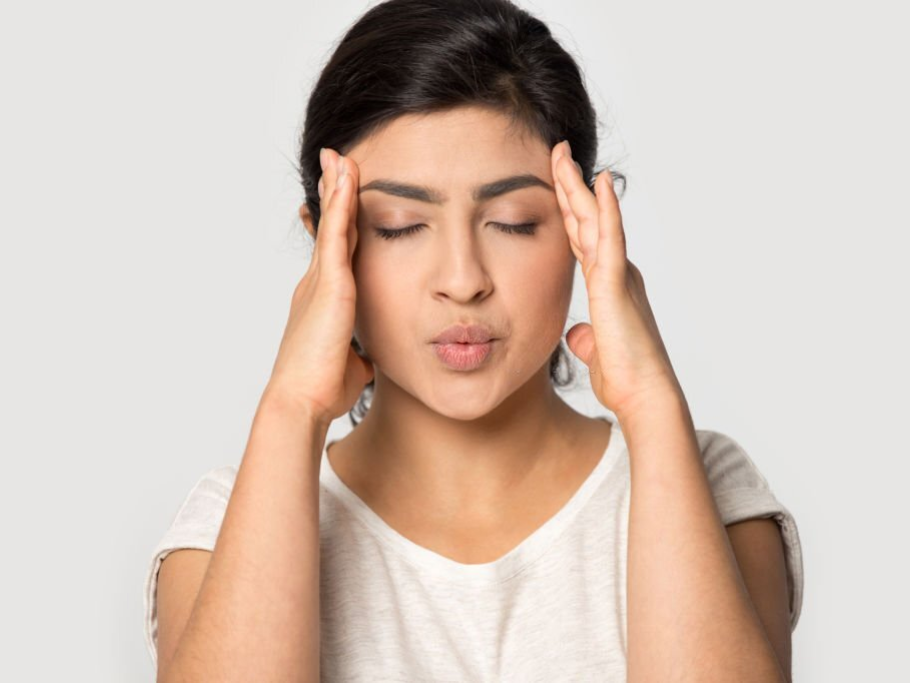Do you ever get these massive headaches that make you sensitive to light? If you have ever felt nauseous due to a headache, the chances are that it may have been a migraine. Migraine in females can be called a more intense and powerful version of a headache that does not go away easily. Did you know that about 36 million Americans are estimated to suffer from migraines? Most people get migraines between the ages of 10 years and 40 years. For many women, the migraines seemed to reduce or disappear after they turned 50 years old.
What Causes Migraines?
Anyone who has ever experienced a migraine often wonders what caused it. Some of the older theories suggested that it was due to fluctuations in the blood flow to the brain. However, recent research says that the fluctuations are more of a factor that contributes to the migraine than being the cause. A recent study focuses on finding out the cause of migraines. In many cases, it is related to inherited genes. Chemical compounds such as estrogen and serotonin often play a significant role in estimating the sensitivity of migraines. When the levels change or fluctuate, it results in migraine. Women tend to have more frequent migraines than men do. Migraine headaches in females are often related to the fluctuating hormone levels. This is why migraines in women slow down after the age of fifty.
How To Identify Migraines?
Migraines and headaches are often mistaken for each other. They are quite similar, but they are not the same thing. Migraines start as a dull headache and develop into throbbing pain. It is usually on one side of the head. The side differs from one person to another. But the pain affects your whole head. A person with migraine often loses their appetite. They also become sensitive to light or even smell of any kind. If the migraine persists, the person may even throw up! In some cases, migraine patients also feel dizzy and fatigued.
 How to Identify Migraines
How to Identify Migraines
Also Read: Essentials To Keep In Your Migraine Relief Kit
What Triggers A Migraine?
Knowing what triggers the migraines is often as important as knowing what causes it. The following are some common triggers that cause migraines.
- Hormonal shifts.
- Environmental changes.
- Exposure to smell or light.
- Change in sleeping pattern.
- Feeling tired or fatigued.
- Changes in the weather condition.
- Certain drinks and food.
- Missed meals.
- Stress or anxiety.
It helps a lot to know what triggers your headache. Your awareness could prevent those migraines from bothering you at the wrong time.
Also Red: Specialized Yoga For Migraine Problem
Treatment For Migraines
Although most migraines last for a few hours, it could go on for a few days as well. People who experience migraines know how painful it can be. This is why seeking treatment is inevitable. There are some drugs that prevent migraines, while others help to reduce the pain.
1. Over-the-Counter Medicines
 Medicines
Medicines
Most people who have migraines take pain killers to reduce the pain. Drugs like ibuprofen or aspirin also help. But be careful not to give it to anyone below the age of 19 as it will increase the risk of developing Reye’s syndrome. If you take these medicines regularly, you could become dependent on it or even get rebound headaches. Try to keep track of how often you take the medicines. If the migraines occur more than twice a week, you should see your physician.
Take a Look: Everything You Need To Know About Tonsil Cyst
2. Preventive Headaches
If your migraines do not go away and you are not responding well to other forms of treatment, the doctor may prescribe preventive medicines for you. This option is kind of a last resort if you are getting more than four migraines in a month. Preventive medicines are to be taken regularly. They may include blood pressure medicine, seizure medicine, and even some antidepressants. The medicines and their dosage depend on the person and their symptoms. It is crucial that you go to a doctor and do not self-treat your migraines for too long.
It is possible to prevent migraines in females. You will have to study your symptoms and figure out what triggers them. If it is something like stress or anxiety, then stress management or exercise like yoga could be really helpful. So many people go through severe migraines for many years without figuring out what triggers them. Awareness plays a crucial role in the journey towards a pain-free life. Repeated cases of migraines can really hamper day-to-day life. They can affect your work and personal life as well. So it is best to seek treatment and prevent migraines in females from happening.
Also Read: Causes Of Lower Left Abdominal Pain

